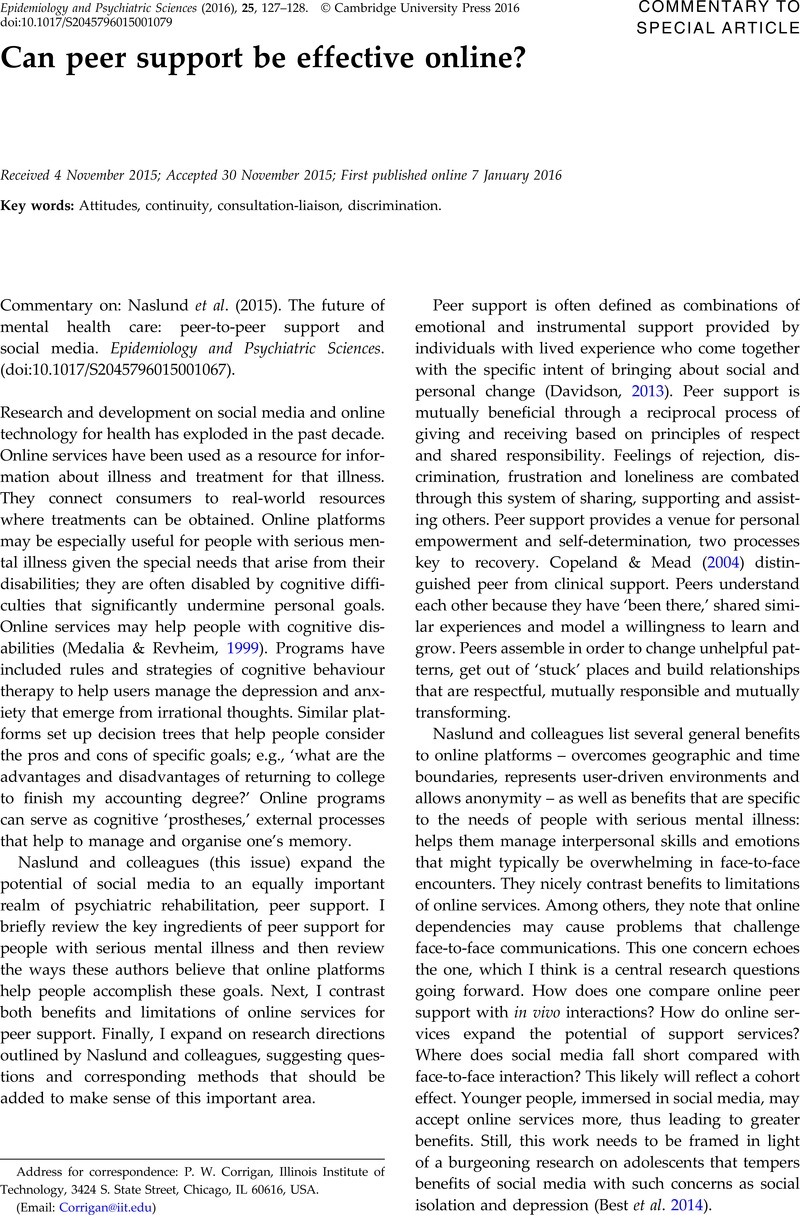Crossref Citations
This article has been cited by the following publications. This list is generated based on data provided by Crossref.
Sangeorzan, Irina
Andriopoulou, Panoraia
and
Livanou, Maria
2019.
Exploring the experiences of people vlogging about severe mental illness on YouTube: An interpretative phenomenological analysis.
Journal of Affective Disorders,
Vol. 246,
Issue. ,
p.
422.
Adair, Cam
and
Luna-Rose, Heather
2022.
Insights from an online self-help forum for people with gaming problems.
Current Opinion in Behavioral Sciences,
Vol. 46,
Issue. ,
p.
101157.
Nouf, Faten
and
Ineland, Jens
2023.
Epistemic citizenship under structural siege: a meta-analysis drawing on 544 voices of service user experiences in Nordic mental health services.
Frontiers in Psychiatry,
Vol. 14,
Issue. ,
Nair, Megha M.
Prabhu, Adithi Priyadarshini
and
Kachhi, Zidan
2024.
Grief and Trauma Counseling Education.
p.
237.



